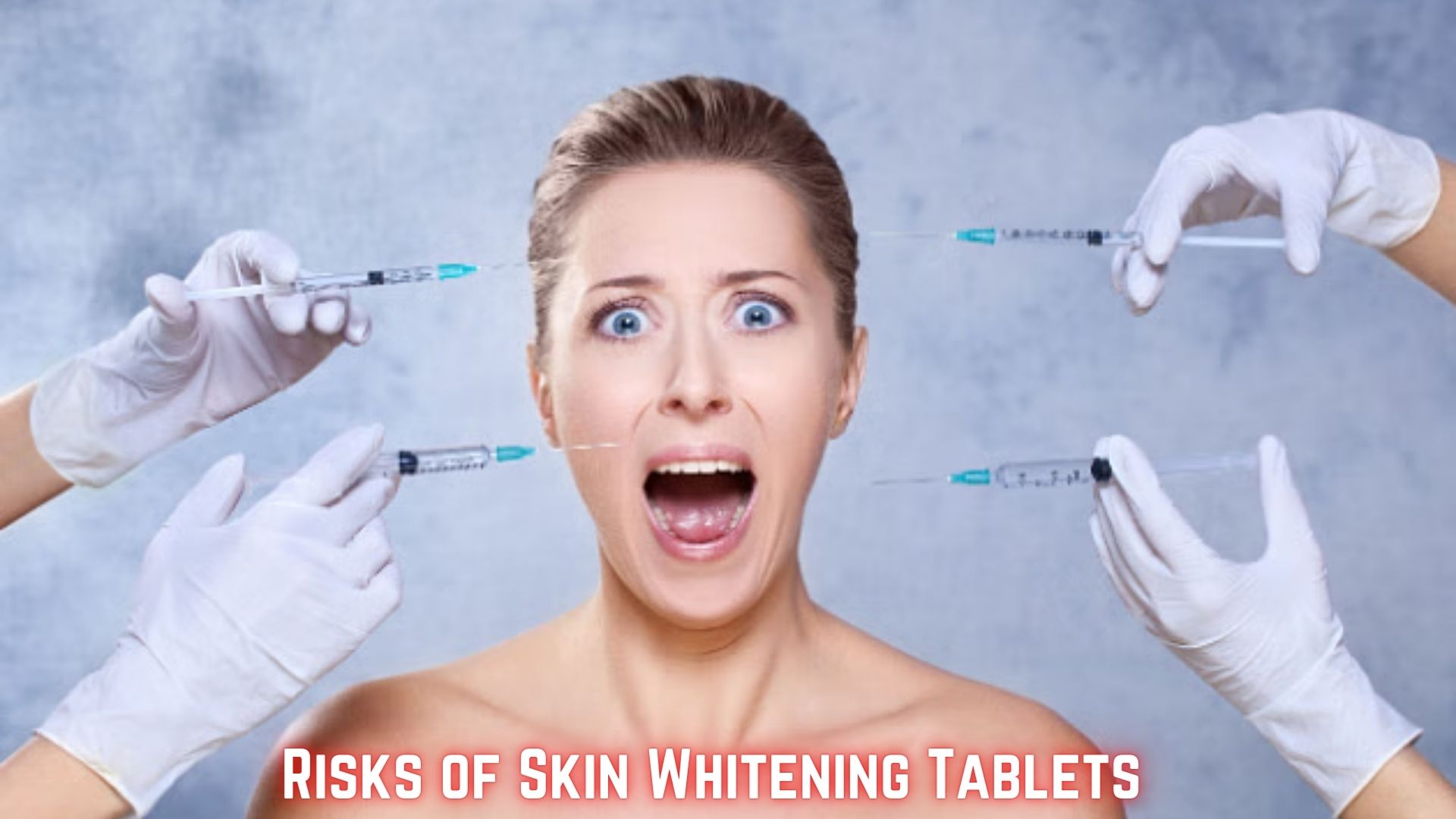Skin whitening tablets are oral supplements that claim to lighten the skin tone and reduce the appearance of dark spots, freckles, and melasma. They usually contain ingredients such as glutathione, vitamin C, hydroquinone, or kojic acid, which are known to inhibit the production of melanin, the pigment that gives the skin its color.
But do these tablets really work? And are they safe to use? In this blog post, we will explore the benefits, risks, and alternatives of Skin Whitening Tablets and help you make an informed decision.
Introduction Skin Whitening Tablets
Skin whitening tablets are oral supplements that claim to lighten the skin tone and reduce the appearance of dark spots, freckles, and melasma. They usually contain ingredients such as glutathione, vitamin C, hydroquinone, or kojic acid, which are known to inhibit the production of melanin, the pigment that gives the skin its color.
But do these tablets really work? And are they safe to use? In this blog post, we will explore the benefits, risks, and alternatives of skin whitening tablets, and help you make an informed decision.
Benefits of Skin Whitening Tablets
Skin whitening tablets may offer some benefits for people who suffer from hyperpigmentation, a condition where some areas of the skin become darker than the surrounding skin. Hyperpigmentation can be caused by various factors, such as sun exposure, hormonal changes, medication, inflammation, or genetics. Some of the benefits of skin whitening tablets are:
- They may help fade dark spots, freckles, and melasma, and even out the skin tone.
- They may boost the skin’s antioxidant defense and protect it from free radical damage, which can cause premature aging and skin cancer.
- They may enhance the skin’s brightness and radiance, and improve its texture and elasticity.
- They may work synergistically with other skin lightening products, such as creams, serums, and peels, and enhance their effects.
Risks of Skin Whitening Tablets

Skin whitening tablets are not regulated by the Food and Drug Administration (FDA), and their safety and efficacy have not been proven by scientific studies. Therefore, they may pose some risks and side effects for the users, such as:
They may contain harmful ingredients, such as mercury, steroids, or hydroquinone, which can cause serious health problems, such as kidney failure, liver damage, nerve disorders, skin infections, skin thinning, acne, and poor wound healing. In 2006, the FDA issued a notice that over-the-counter skin bleaching products are not recognized as safe and effective.
They may cause allergic reactions, such as skin rashes, blisters, hives, itching, burning, and swelling. Some people may also experience nausea, vomiting, diarrhea, headache, or fever after taking the tablets.
They may cause skin discoloration, such as exogenous ochronosis, a condition where the skin develops blue-black patches due to long-term use of hydroquinone. They may also cause hypopigmentation, where the skin becomes too light and loses its natural color.
They may not work for everyone, especially for people with darker skin tones, who may have more melanin and may need higher doses of the tablets. They may also worsen hyperpigmentation in some cases, by stimulating the production of more melanin as a response to the skin bleaching agents.
They may interact with other medications or supplements, and affect their absorption or metabolism. For example, vitamin C may interfere with the effectiveness of some antibiotics, and glutathione may lower the levels of some chemotherapy drugs.
They may not provide lasting results, and the skin may revert to its original color once the user stops taking the tablets. The user may also need to avoid sun exposure and use sunscreen regularly to maintain the results, as the skin may become more sensitive to the sun after using the tablets.
Alternatives to Skin Whitening Tablets
If you are looking for a safer and more natural way to lighten your skin, you may want to consider some alternatives to skin whitening tablets, such as:
Topical products, such as creams, serums, and peels, that contain natural skin lightening ingredients, such as licorice extract, arbutin, niacinamide, azelaic acid, or vitamin C. These products can help reduce the production of melanin and fade hyperpigmentation, without causing harmful side effects. However, they may take longer to show results, and they may not be effective for deeper or more stubborn pigmentation.
Professional treatments, such as chemical peels, microdermabrasion, laser therapy, or intense pulsed light (IPL), that can remove the top layer of the skin and reveal a lighter and more even complexion. These treatments can provide faster and more dramatic results, but they may also be more expensive, painful, and risky. They may also require multiple sessions and proper aftercare to prevent complications, such as infection, scarring, or post-inflammatory hyperpigmentation.
Lifestyle changes, such as avoiding sun exposure, wearing sunscreen, moisturizing the skin, eating a balanced diet, drinking enough water, exercising regularly, and managing stress. These habits can help improve the overall health and appearance of the skin, and prevent further damage and pigmentation.
Conclusion
Skin whitening tablets are oral supplements that claim to lighten the skin tone and reduce the appearance of dark spots, freckles, and melasma. They may offer some benefits for people who suffer from hyperpigmentation, but they may also pose some risks and side effects, such as skin discoloration, allergic reactions, or organ damage.
Therefore, it is important to consult a dermatologist before using these tablets, and to follow the instructions and precautions carefully. Alternatively, you may want to try some other methods to lighten your skin, such as topical products, professional treatments, or lifestyle changes, which may be safer and more natural. Remember, the best way to achieve a beautiful and healthy skin is to embrace your natural color and take good care of it.



